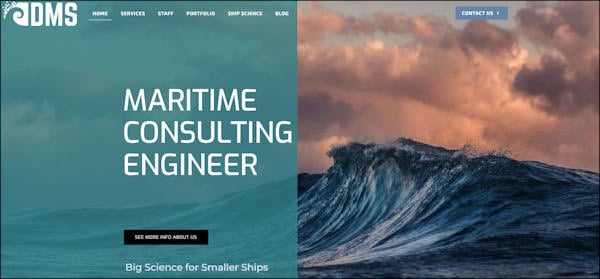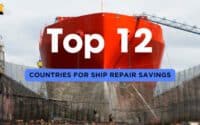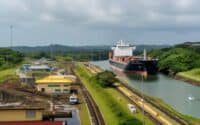The Dynamic, Data-driven Future of Vessel Design: A Deep Dive into Datawave Marine Solutions

A New Wave in Vessel Design: Introduction to Datawave Marine Solutions and Their Unique Approach
Maritime engineering, while often overshadowed by the grandeur and beauty of seafaring vessels, serves as the keystone in the maritime industry. Behind the gleaming hulls and towering masts, engineering controls not just the operational functionality but the very profitability of maritime businesses. Ships, despite their allure, are business tools and their design, construction, and operation directly impact the bottom line.
* Please send feedback/suggestions to editor @ shipuniverse.com
The Philosophy of DMS
Enter Datawave Marine Solutions (DMS), a vanguard in the industry that has adopted a fresh perspective on vessel design. DMS shifts the focus from simply pursuing the best quality ship to designing vessels that bring the best return on investment. The ‘best’ vessel does not always equate to the most advanced or expensive one; instead, it’s about focusing on quality where it matters, enhancing areas that directly benefit the operation of the business.
Understanding this business-first approach is essential in truly realizing the potential of the vessels and the overall profitability of your marine operations. DMS’s philosophy lies in aligning the investment in design and engineering with the potential benefit for the ship and the business it serves.
Custom Vessel Design
One of the key ways that DMS brings this philosophy to life is through custom vessel design. Much like commissioning a custom work of art, DMS collaborates with the vessel owners, acknowledging that they know their business, their people, and the ocean best. DMS’s expertise lies in emergency safety protocols, efficient operation science, and a wealth of experience working with various vessel owners.
By understanding the owner’s perspective and goals, DMS can apply its knowledge to achieve these objectives. The result is a uniquely tailored vessel, designed not only to meet but exceed operational and business expectations.
Breaking Free from Conventional Design Limitations
In the traditional vessel design landscape, many ships suffer from rigid designs, boxed into their missions and predefined categories such as fishing vessels, passenger boats, cargo ships, and so on. DMS, however, is challenging these conventional boundaries.
With the experience and insights gathered from working on nearly every type of vessel, DMS is uniquely positioned to offer more flexible and creative solutions. Instead of prescribing to constraints of the predefined categories, DMS sees opportunities for alternative solutions that are more closely aligned with the business needs and operational nuances of each vessel.
By breaking free from conventional design limitations, DMS isn’t just designing vessels; it’s reshaping the vessel design paradigm to offer a more tailored, efficient, and profitable approach to the maritime industry.
Harnessing the Power of Advanced Analysis and Naval Architecture
Advanced Analysis in Vessel Design
While traditional engineering principles have laid the foundation for vessel design for decades, advanced analysis promises to surmount these conventional boundaries, ushering in a new era of precision and capability. At the heart of this revolution is DMS, leading with four major areas of advanced analysis:
- Computational Fluid Dynamics (CFD): Simulating fluid interactions, CFD delves deep into understanding the intricacies of water flow around vessels, enabling more efficient hull designs and optimized propulsion systems.
- Finite Element Analysis (FEA): A computational tool employed to predict how materials will react to external forces, FEA aids in designing stronger, safer, and more durable vessels.
- Seakeeping Analysis: Going beyond mere vessel design, Seakeeping analysis predicts a vessel’s behavior in various sea conditions, ensuring not just seaworthiness but also comfort and safety for its occupants.
- Concept Design: It’s the initial phase where ideas take shape. DMS utilizes a mix of creativity and computational tools to draft the initial blueprints, ensuring feasibility and alignment with the client’s requirements.
Ensuring Simulation Accuracy
No matter the technological prowess, simulations are only as good as their accuracy. Erroneous simulations can lead to catastrophic consequences in the real world, making the role of experienced engineers pivotal. DMS places utmost emphasis on this very aspect.
At DMS, ensuring simulation quality isn’t merely about using advanced software but marrying it with years of maritime engineering experience. It’s this balance of human expertise and computational strength that ensures each simulation not only mirrors reality but offers insights into optimizing vessel performance.
Regaining Control with Naval Architecture
The vastness of the oceans and their unpredictable nature can exert significant influence on a vessel’s operation. Naval architecture, with its arsenal of tools and principles, emerges as a game-changer. Through precise design considerations, naval architecture can mitigate the ocean’s influence, leading to vessels that are safer, more comfortable, and optimized in terms of powering. Moreover, by determining environmental loads, it ensures vessels remain resilient against nature’s wrath.
DMS’s Experience and Flexibility in Naval Architecture
With a storied history of designing a spectrum of vessels, ranging from quaint fishing boats to state-of-the-art offshore behemoths, DMS’s expertise in naval architecture is unmatched. What sets them apart is not just their experience but the flexibility they bring to the design table. Recognizing that no two ships or operations are identical, DMS employs a flexible design process, adaptable and customizable to the unique requirements of each project. In this versatility, DMS ensures that each vessel is not just a product of technical excellence but a reflection of its owner’s vision and purpose.
Ship Structure Design and the Phased Approach of Engineering Workflow
Designing the Ship Structure
At its core, ship design revolves around the structure, which ensures that water remains an external element. A ship’s structure is its shield, its very essence, allowing it to brave turbulent seas while ensuring safety and stability.
There are three pivotal considerations that guide the foundation of a robust ship structure:
- Minimizing Structural Weight: By leveraging innovative materials and optimized design techniques, the ship’s weight is kept at bay, ensuring increased fuel efficiency and better load capacity.
- Controlling Engineering Costs: A balance is struck between using high-quality materials and optimizing design processes to ensure costs remain within manageable bounds without compromising on quality.
- Keeping the Structure Sensible: This pertains to creating a design that allows for easy maintenance, modifications, and ensures the vessel’s longevity.
Services in Structure Design
DMS, with its plethora of services, stands as a beacon in ship structure design. Their offerings encompass:
- Design Ship Structure: Crafting the main blueprint, DMS ensures every inch of the vessel stands resilient against the forces of nature.
- Structural Modifications: Recognizing the evolving nature of maritime requirements, they provide services to alter existing structures, ensuring they remain contemporary and effective.
- Major Equipment Foundations: A specialized service ensuring that heavy machinery and equipment are securely housed, maintaining ship balance and safety.
- Composite Structures and Fatigue Analysis: DMS’s proficiency extends into designing composite structures, known for their durability and lightweight nature. Coupled with fatigue analysis, they ensure these structures can withstand repeated stress without failing.
Engineering Workflow – Phased Structure
DMS’s engineering workflow is methodical, broken down into discernible phases to ensure clarity, efficiency, and precision:
Details of Each Design Phase
- Mission Study: This phase lays the groundwork. It involves extensive consultations with stakeholders, understanding the vessel’s primary purpose, and analyzing maritime trends and requirements.
- Concept Design: The broad strokes are painted here. This phase ensures the feasibility of the project, creates preliminary designs, and aligns the ship’s structure with the mission’s objectives.
- Contract Design: More than just design, this phase encompasses cost analyses, timelines, and vendor interactions. It ensures the ship’s design aligns with budgetary and contractual considerations.
- Construction Design: The detailed design phase, it caters to everything from material selection to defining construction methodologies, ensuring the ship is built to last.
The DMS approach seamlessly interweaves engineering brilliance with pragmatic business considerations, crafting vessels that are not only marvels of maritime engineering but also emblematic of economic prudence. Through their endeavors, the maritime realm is promised vessels that sail efficiently, safely, and purposefully into the future.

Do you have a Maritime Product or Service that may be of interest to Shipowners? Tell us about it here!
Do you have feedback or insights? Please reach out to editor @ shipuniverse.com



